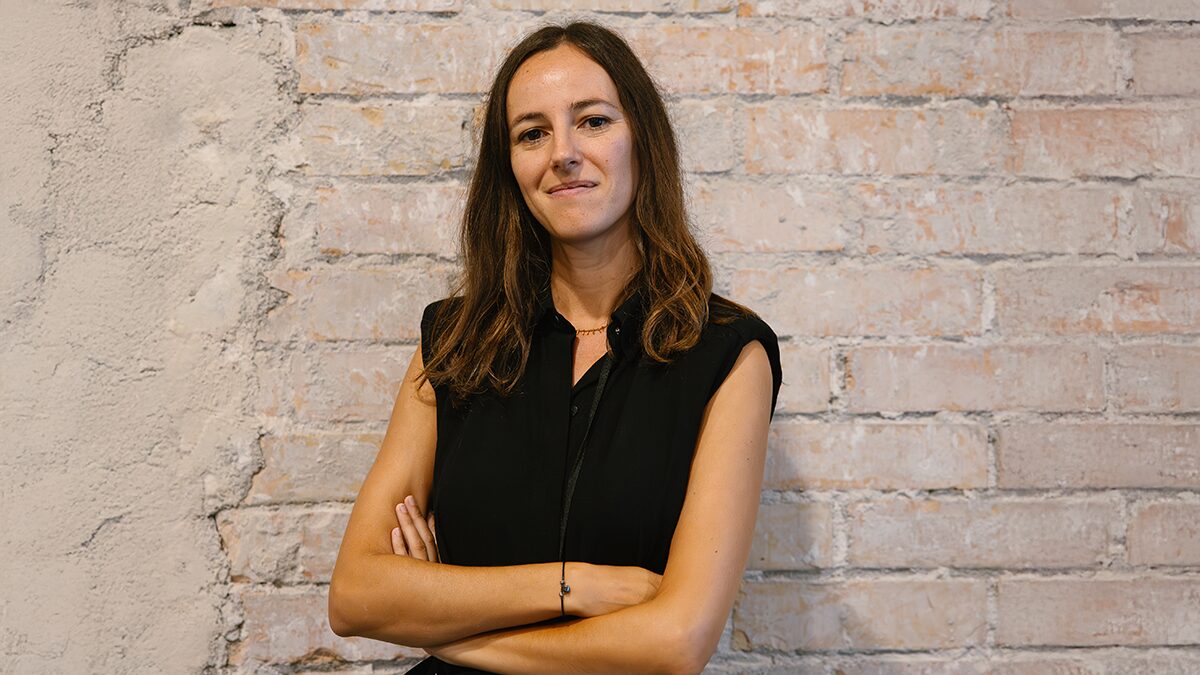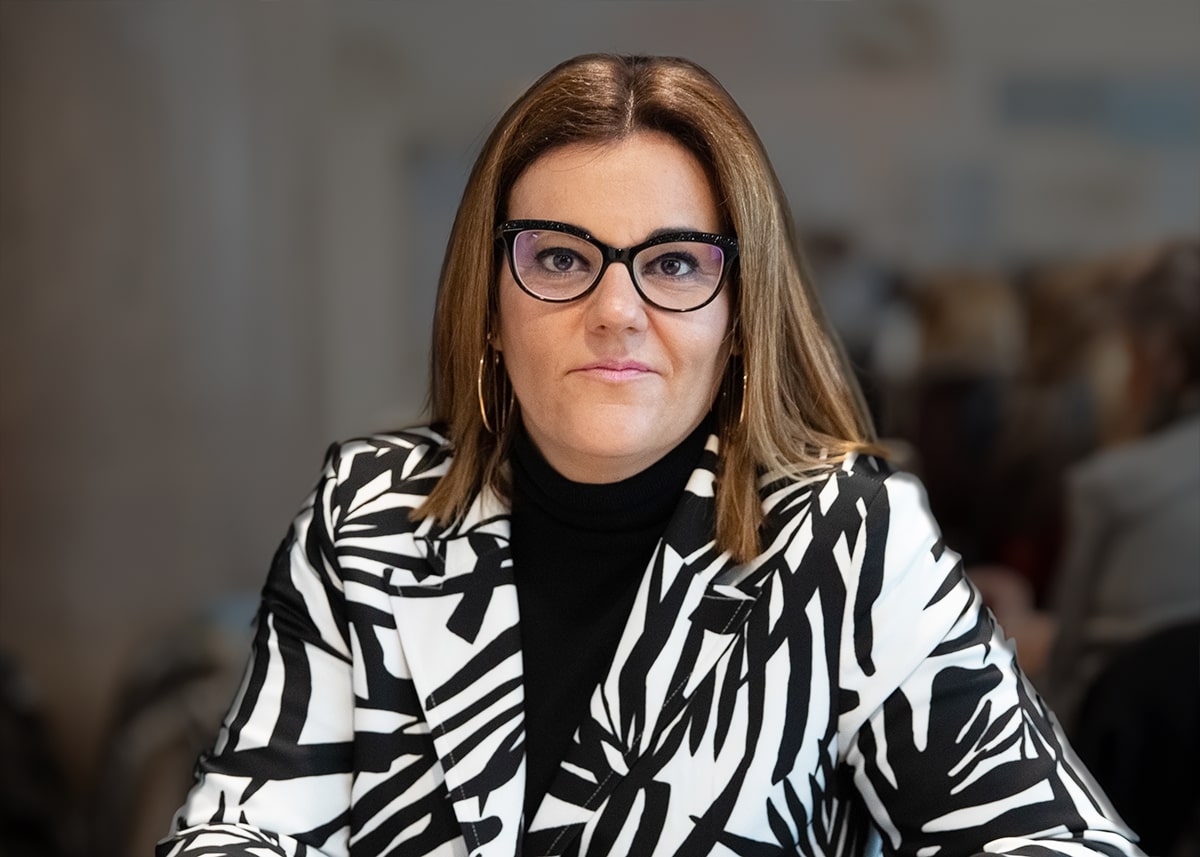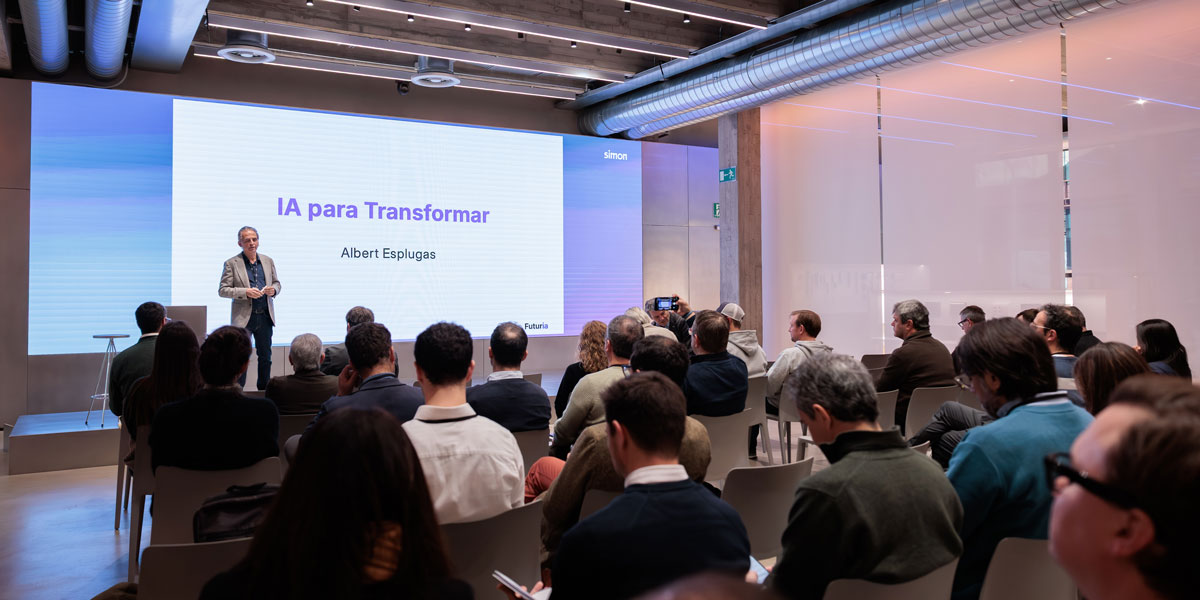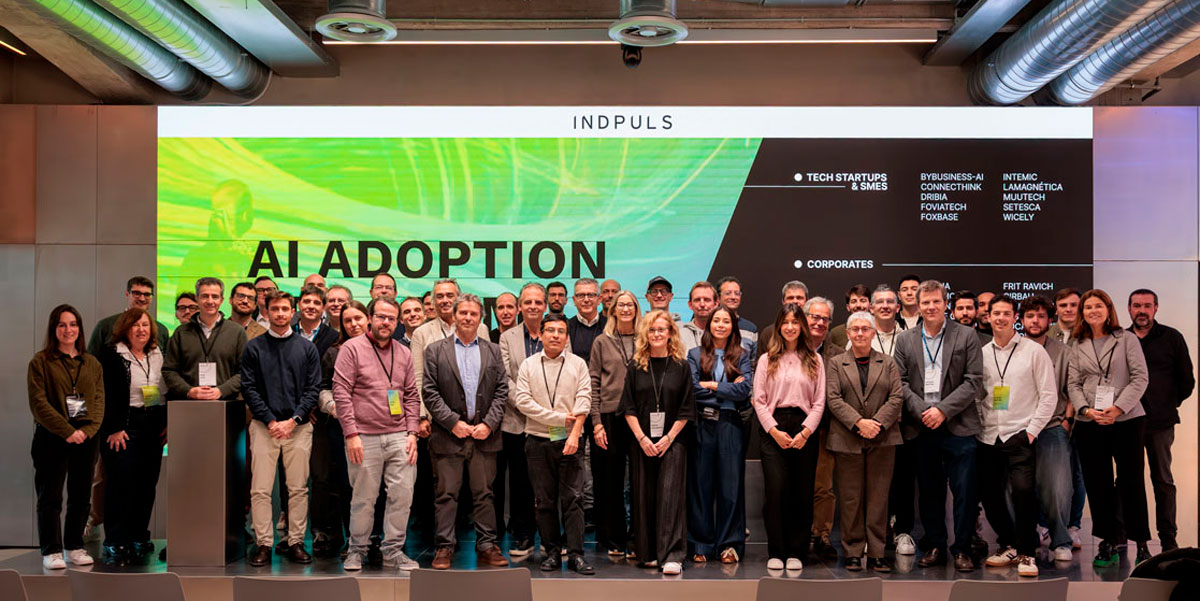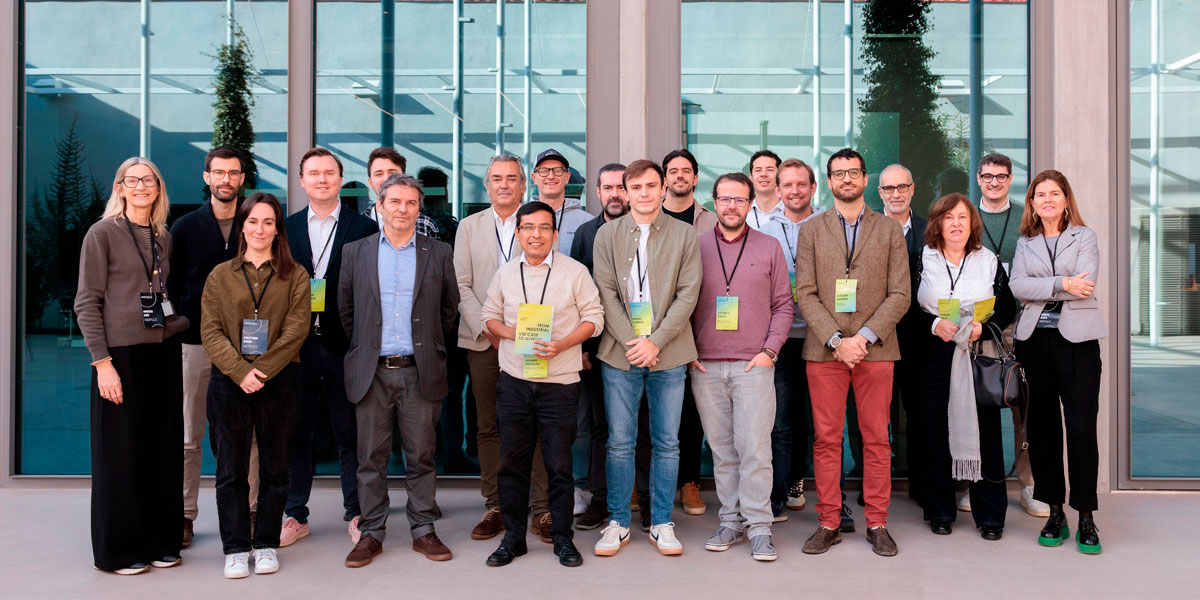Strategy, Innovation and Industry at Penedès Summit 2025
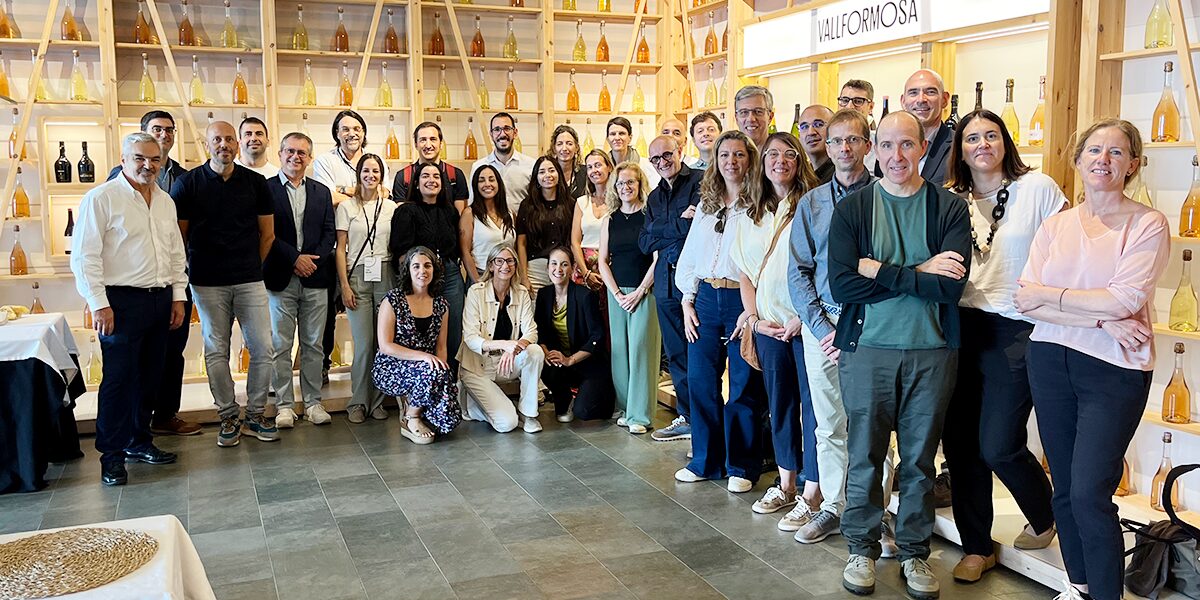
The Penedès Summit 2025, organized by INDPULS and held in the privileged and inspiring setting of Masia Vallformosa, has consolidated itself as a meeting point for executives in innovation and business development. Over two days, experts and representatives from the INDPULS ecosystem shared insights and methodologies to describe the current state of innovation and move toward a horizon of more agile, open, and impact-conscious companies.
David Alayón, CEO of Innuba and an expert in innovation and disruptive technologies, opened the debate by positioning disruption as a permanent condition and projection capability as a fundamental tool. He emphasized that innovation requires imagining multiple plausible scenarios and recognizing that our perception of the world is distorted by biases and beliefs.
According to Alayón, artificial intelligence should act as an amplifier of human capabilities, but never as a substitute for critical thinking.
The block dedicated to innovation models and methodologies brought together several presentations offering tangible examples of how to structure and guide innovation. During her talk, Agata Gelabertó, Head of Innovation and Business Development at Idilia, shared the success of the Strategic Innovation Cycle Wheel, implemented daily in the innovation department, and highlighted the importance of the IVI, the indicator measuring the percentage of sales attributable to innovation. She argued that it should be analyzed over both three- and ten-year horizons to gain a full view, and warned that only 23% of product references survive more than five years. Her conclusion was clear: innovation depends not only on processes but also on the leadership and culture that sustain them.
In the same line, Pere Camprovin, Director of Open Innovation at Fluidra, presented the Fluidra Lab model, aimed at increasing the organization’s innovative capacity through open innovation with a dual outside-in and inside-outapproach. He emphasized the company’s ambition to be a strategic partner for business units, capable of identifying valuable opportunities. The approach is based on pretotyping, which allows quick validation with clients under the principle “if you buy it, we’ll make it.” Within this framework, he highlighted the creation of Fluidra Ventures, a €20 million fund specializing in pools and wellness, designed to invest in tech startups aligned with the group’s strategic needs.
Finally, Clara Guasch, Director of Girbau LAB and member of the Girbau Innovation Council, stressed the importance of mitigating the negative externalities of business activities and using the planetary boundaries framework as a compass to set priorities. Among the current challenges, Guasch pointed out reducing water consumption, eliminating microplastics, and developing regenerative business models with a positive impact on the planet.
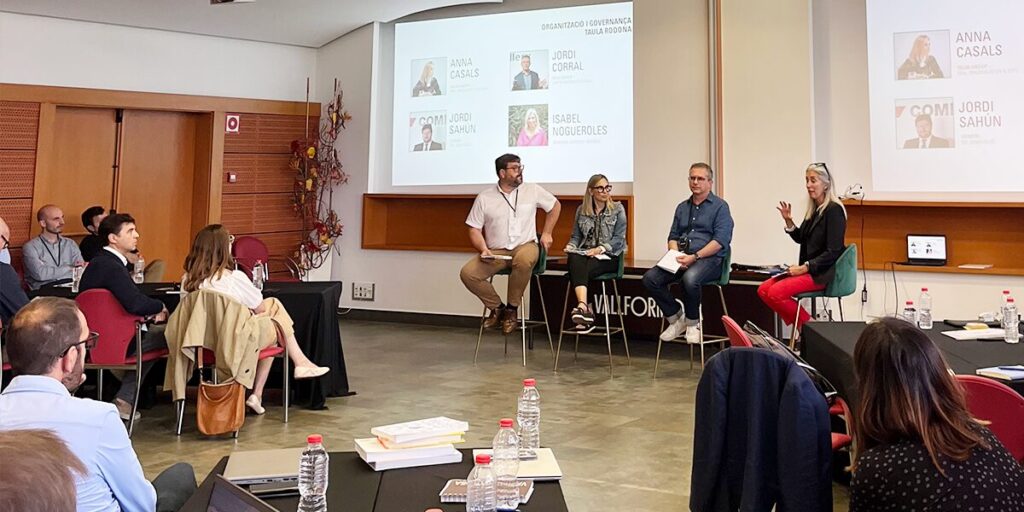
The event also featured a roundtable on organization and governance, moderated by Isabel Nogueroles, and joined by Anna Casals, Innovation Director at CELSA Group; Jordi Sahún, Innovation Director at Comexi; and Jordi Corral, Innovation Director at Roca. The discussion underscored how family businesses have a natural predisposition toward innovation, derived from their long-term orientation and their will to preserve and project a legacy — factors that provide a competitive advantage in an environment characterized by accelerated cycles and high technological complexity.
The keynote by Henry Chesbrough, Professor at the Haas School of Business, University of California, Berkeley, and a global reference in open innovation, offered an analysis of the role of artificial intelligence in knowledge management. According to Chesbrough, AI is highly efficient in processing codified knowledge, but has greater difficulty handling tacit knowledge, linked to experience and professional judgment — both of which remain crucial in any innovation process.
According to Chesbrough, AI can accelerate the generation and evaluation of ideas and technologies and help identify patents with potential, but its implementation requires controlled experimental phases before addressing scalability.
Albert Esplugas, Head of Generative AI Analyst Relations at Amazon Web Services, emphasized that the implementation of artificial intelligence within an organization requires professionals to see it as a tool that enhances their skills. He stressed the importance of clearly defining roles: those that must remain in human hands, those that can be assumed by AI agents, and those that will lead to augmented humans, where the combination of human judgment and technology generates unique value. This approach, according to Esplugas, forms the foundation for integrating AI into processes and corporate culture in a solid and scalable way.
Felip Vidiella, Director of Innovation and Research at Dow Chemical until 2022, presented his formula for innovation, defined as the combination of creativity, experience, and financial knowledge. He highlighted that team composition is a critical factor and that junior profiles must be balanced with experienced professionals to ensure learning and continuity. According to Vidiella, the product lifecycle requires differentiated professional roles: “starters”, focused on idea generation; “developers”, focused on development; “optimizers”, driving growth; and “servicers”, ensuring product maturity and maintenance. This functional segmentation aligns talent with the specific needs of each stage and maximizes the market impact of innovation.
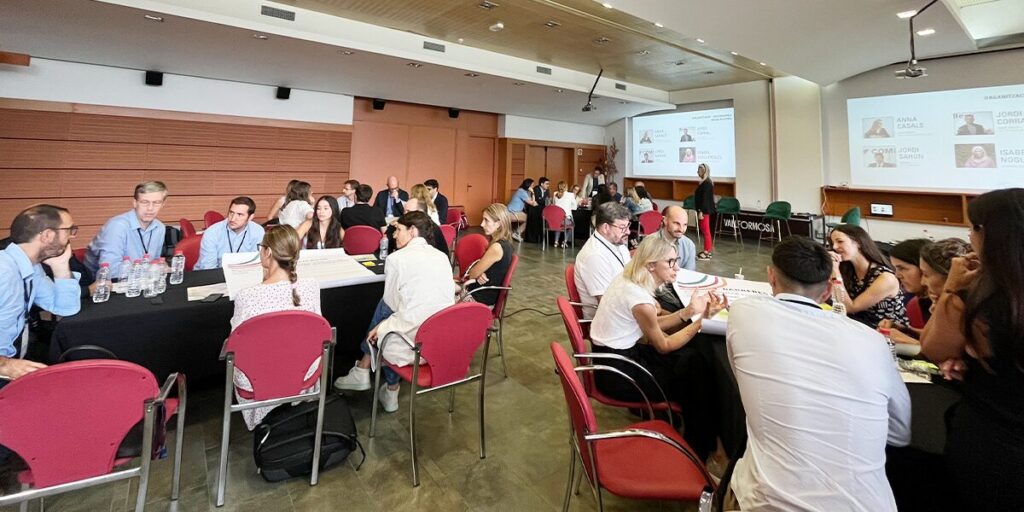
The closing speech was delivered by Xavier Marcet, President of Sarah Marlex, who warned about the tendency to overestimate the short-term impact of technologies and underestimate their long-term effects. He highlighted that artificial intelligence is useful for facilitating connections and simulations, but the ability to think and maintain closeness with clients cannot be delegated. According to Marcet, innovation will remain a radically human activity, and in increasingly homogeneous markets, differentiation will become a decisive factor. Finally, he emphasized the need to move beyond technological followerism and to promote a European management model, capable of integrating cultural traits while ensuring competitive and sustainable results.
“The idea behind the Penedès Summit was none other than to provide knowledge and inspiration to partners and collaborators around innovation and shared challenges such as the adoption of artificial intelligence. Doing so in this format involves the challenge of taking participants away from their daily agendas for two days, but at the same time it allows us to create different spaces and moments to share knowledge. A distinguishing feature of INDPULS is precisely its ability to combine high-level presentations with a deep understanding of the reality experienced by member companies — their innovative projects and the various approaches they use to maximize impact. We believe we’ve achieved our goal of bringing value to participants and will therefore continue to replicate events in this spirit in the future,” explained Marc Marcet, Senior Consultant at Sarah Marlex.
With this edition, the Penedès Summit is consolidated as a strategic initiative by INDPULS, attended by all its members and reinforcing its role as a space for connection and collective learning. The event sends a clear message: innovation requires strategy, vision, and responsibility. The integration of new technologies must be accompanied by an organizational transformation capable of generating tangible value for society and ensuring companies’ competitiveness in an increasingly dynamic global environment.

